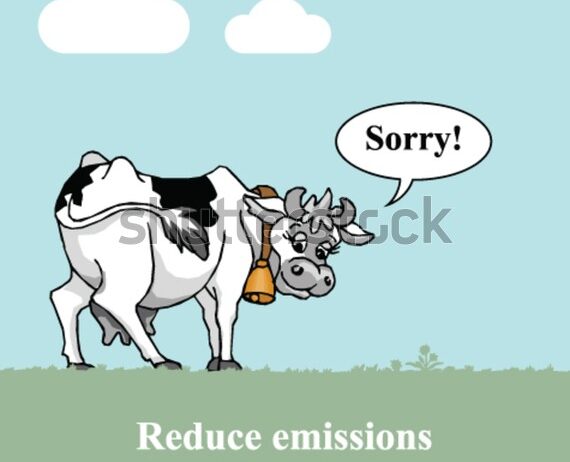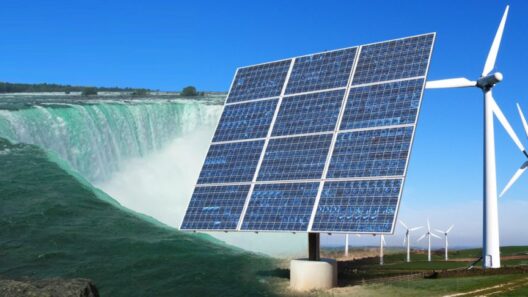Cows are often seen grazing peacefully in pastures, but lurking behind their tranquil facade is a troubling environmental truth. Do you ever wonder, what comes out the other end? Cow manure, while a natural byproduct, has profound ramifications for global warming. This article explores the intricate relationship between cow manure and climate change, addressing its impact on greenhouse gas emissions and potential solutions.
To grasp the environmental ramifications of cow manure, it is crucial to understand the nuances of how it contributes to climate change. As ruminant animals, cows have a unique digestive process that produces methane, a potent greenhouse gas. Methane (CH₄) is over 25 times more effective than carbon dioxide (CO₂) at trapping heat in the atmosphere over a 100-year period. This makes it imperative to address methane emissions from livestock, particularly from cows, which produce an astonishing amount due to their digestive systems. One cow can release anywhere from 70 to 120 kg of methane annually. To put this in perspective, consider the cumulative effect of millions of cows around the globe. This staggering statistic poses the question: how do we mitigate these emissions?
The production of methane does not stop with digestion. When cow manure decomposes in anaerobic conditions—those without oxygen—it emits methane. Manure is often stored in lagoons, pits, or heaps where it ferments and breaks down, creating ideal conditions for methane production. The Environmental Protection Agency estimates that enteric fermentation and manure management combined account for over 25% of total U.S. methane emissions. This Herculean contribution begs the question of whether we can tackle the problem at its source.
Several strategies have emerged to curb methane emissions from cow manure. One of the most promising methods is the implementation of anaerobic digestion systems. These systems harness the methane produced from decomposing manure to generate electricity, heat, or even biofuel. By capturing methane before it escapes into the atmosphere, anaerobic digesters not only mitigate greenhouse gas emissions but also provide a sustainable energy source. In fact, some farms have successfully transitioned to energy-neutral operations by utilizing their manure effectively.
Another innovative solution is the use of feed additives to reduce methane production during digestion. Research has shown that incorporating seaweed, specifically Asparagopsis taxiformis, into cow diets can significantly decrease methane emissions caused by enteric fermentation. This red seaweed contains compounds that inhibit the microbes responsible for methane production in the cow’s stomach. Although this method is still under investigation, initial results are promising. So, could altering their diet be the silver bullet we’ve been searching for?
However, it is essential to acknowledge that addressing methane emissions from cow manure involves more than just technological fixes. Sustainable land management practices can play a pivotal role. Implementing rotational grazing techniques can improve soil health and increase carbon sequestration, while also reducing the overall methane footprint of livestock operations. By allowing grasslands to recover between grazing periods, farmers can foster robust ecosystems that not only produce food but also contribute to the larger battle against climate change. In this context, promoting biodiversity and protecting grasslands becomes crucial.
While potential solutions abound, challenges remain. The agricultural sector is often steeped in tradition and resistant to change. Farmers may hesitate to adopt new technologies or practices due to the financial burdens they entail. The investment in anaerobic digestion systems, for instance, can be substantial, and without adequate financial incentives, many farms may choose to stick to conventional manure management practices. Policymakers must navigate these complexities to promote change in the agricultural landscape.
Moreover, public perception plays a critical role. The environmental implications of livestock farming are often overshadowed by the demand for affordable protein sources. As the global population continues to grow, the appetite for beef and dairy products shows no signs of waning. A shift in consumer behavior is necessary to spur change within the industry. Consumers must be educated about the environmental consequences of their dietary choices, leading to a potential shift toward sustainable and ethically-raised livestock products.
The relationship between cow manure and global warming is multifaceted and complex. It intertwines agricultural practices, technological innovations, and consumer behavior. The challenge lies in bridging the gap between awareness and action. If society can mobilize toward sustainable practices, the collective impact on methane emissions could be revolutionary.
In conclusion, questioning the impact of cow manure on global warming reveals a broader narrative about our agricultural systems and climate change. The potent emissions associated with cow waste serve as a reminder of the responsibility we hold to rethink our relationship with livestock. By embracing innovative solutions, sustainable practices, and changing consumer habits, we can work towards mitigating one of the more significant contributors to climate change. The question remains: are we ready to take action, or will we allow cow manure to continue derailing our efforts to combat global warming?







